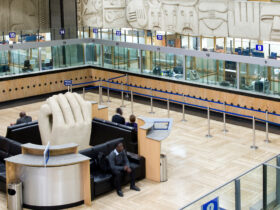Nigeria’s Foreign Direct Investment (FDI) dropped to $29.83 million in Q2 2024, the lowest level since 2013, according to data from the National Bureau of Statistics (NBS). This represents a 65.33% decline from $86.03 million in Q2 2023 and a 74.97% reduction from $119.18 million in Q1 2024.
Sharp Drop in Equity Investment
Most of the FDI in Q2 2024 came from equity investments, totaling $29.82 million—a sharp 74.98% drop from $119.17 million in the previous quarter. Year-on-year, this figure declined 65.33% from Q2 2023’s $86.02 million.
The “Other Capital” category recorded a minimal inflow of just $0.0085 million, down 33.33% from $0.01275 million in both Q1 2024 and Q2 2023.

Foreign Currency Loans Dominate Capital Inflows
Though FDI dwindled, Nigeria saw a total capital importation of $2.60 billion in Q2 2024. Foreign currency loans accounted for $2.55 billion (98.08% of the total). This reliance on loans reflects investors‘ preference for safer financial instruments amid uncertainties.
Portfolio Investments and Loans Decline
Portfolio investments also dropped to $1.40 billion in Q2 2024, a 74.97% fall from $5.60 billion in Q1 2024 and a 65.33% decline from $4.05 billion in Q2 2023. Foreign currency loans decreased to $1.15 billion, down 74.98% from $4.60 billion in Q1 2024 and 65.33% from Q2 2023.
Economic Concerns Persist
The steep drop in FDI raises concerns about Nigeria’s long-term economic prospects, despite government efforts to attract foreign investment. Despite President Bola Tinubu’s claim of securing $30 billion in FDI commitments, the latest data shows a challenging investment climate.


















